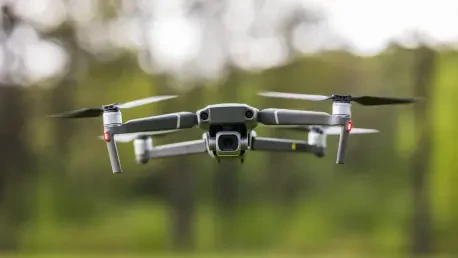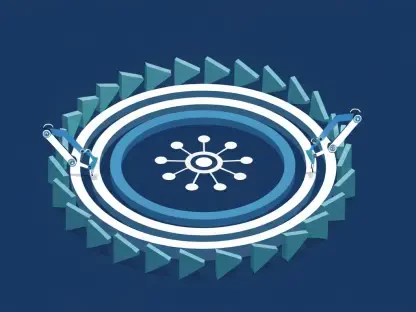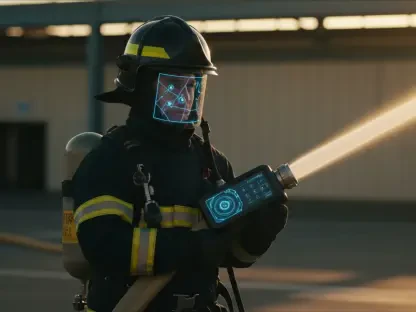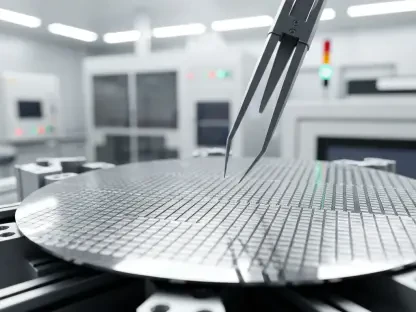On April 14, 2025, an international drone racing event in Abu Dhabi marked a groundbreaking achievement in the field of artificial intelligence (AI) and robotics. For the first time, an autonomous drone decisively outperformed human pilots in a high-speed competitive race, heralding a new era in drone technology. This unprecedented victory at the A2RL Drone Championship demonstrated that AI-powered drones could not only compete with but also defeat seasoned human pilots, challenging the boundaries of machine and human capabilities.
A New Milestone in Drone Racing
The A2RL Drone Championship and the simultaneous Falcon Cup Finals brought together leading drone pilots and cutting-edge autonomous AI technologies in a thrilling display of speed and precision. The competition culminated in a breathtaking showdown between the finest human pilots and the most advanced AI drones. The highlight was an autonomous drone developed by the Micro Air Vehicle Laboratory (MAVLab) at Delft University of Technology (TU Delft), which triumphed over three former Drone Champions League (DCL) world champions, achieving speeds up to 95.8 km/h on a complex, winding track.
Technological Breakthroughs and Insights
The event illuminated significant technological advancements in AI drone technology, showcasing deep neural networks engineered to control drones’ motors directly. These networks, introduced by experts from MAVLab at TU Delft, represented a leap forward in AI capabilities in real-world environments. They highlighted the possibility of AI surpassing human reflexes and decision-making in high-speed racing scenarios.
Dynamic Debates and Panel Discussions
Panel discussions played a crucial role in exploring the evolving dynamics between human pilots and autonomous drones. Experts engaged in thought-provoking debates about the potentials and constraints of current AI technologies. Emphasis was placed on AI’s capacity to enhance racing performance by boosting reflexes and decision-making processes, fundamentally altering the competitive landscape of drone racing.
Interactive Workshops and Demonstrations
Interactive workshops and live demonstrations captured the audience’s curiosity, providing hands-on experiences with the technology behind autonomous drones. Participants gained valuable insights into how AI integrates into competitive racing scenarios, observing up-close the efficiency and performance capabilities of AI systems designed for high-speed operations.
Showcasing Cutting-Edge Innovations
The event also featured exhibitions of the latest drone technology, underscoring the practical applications and potential of AI in diverse real-world contexts. Innovations displayed included highly optimized AI systems for drone racing, drawing significant interest and illustrating the growing influence of AI technology in various fields.
The Long-Term Impact and Future Prospects
The success of the autonomous drone at the A2RL Drone Championship has profound implications for the future of AI and robotics. This achievement underscores the rapid progression and real-world applicability of artificial intelligence in complex environments. The victory of the AI drone, guided by deep neural networks developed with reinforcement learning, suggests widespread potential for AI to outperform human capabilities in various sectors.
Implementing these advanced AI systems is expected to significantly influence fields beyond drone racing. Autonomous drones with robust AI can enhance emergency response operations, improve the efficiency of robotic applications, and revolutionize industries requiring rapid decision-making and precise control. The continual advancements demonstrated by the TU Delft team, in association with the European Space Agency’s pioneering work, herald a new era of innovation and efficiency in technological applications.
The historic victory achieved by the autonomous drone in an international racing competition highlights the expanding role of AI in enhancing and transforming real-world operations. As AI technology continues to evolve, its impact on competitive racing and its broader implications for various industries are anticipated to grow, driving forward the boundaries of what is possible with machine intelligence.









